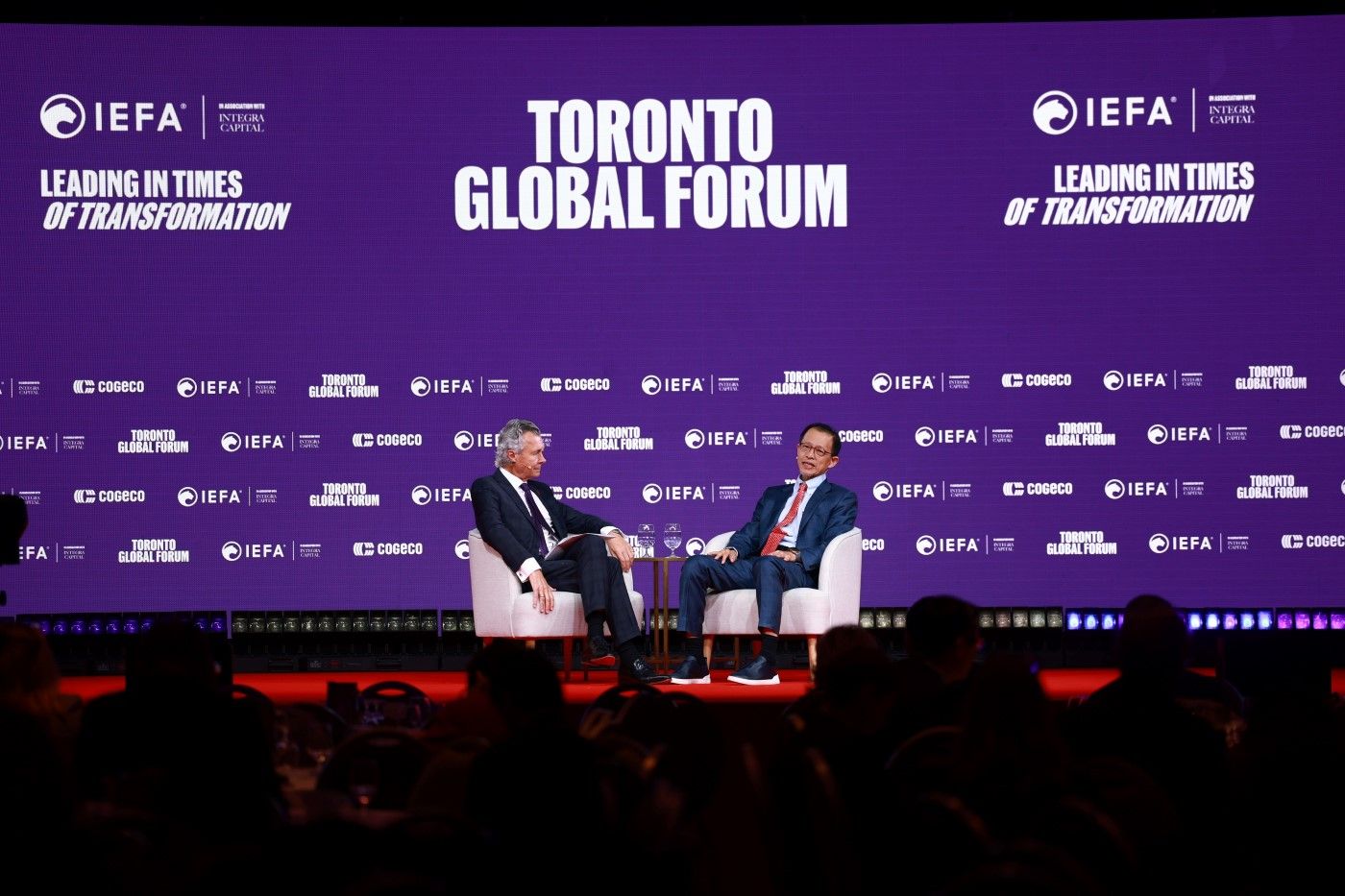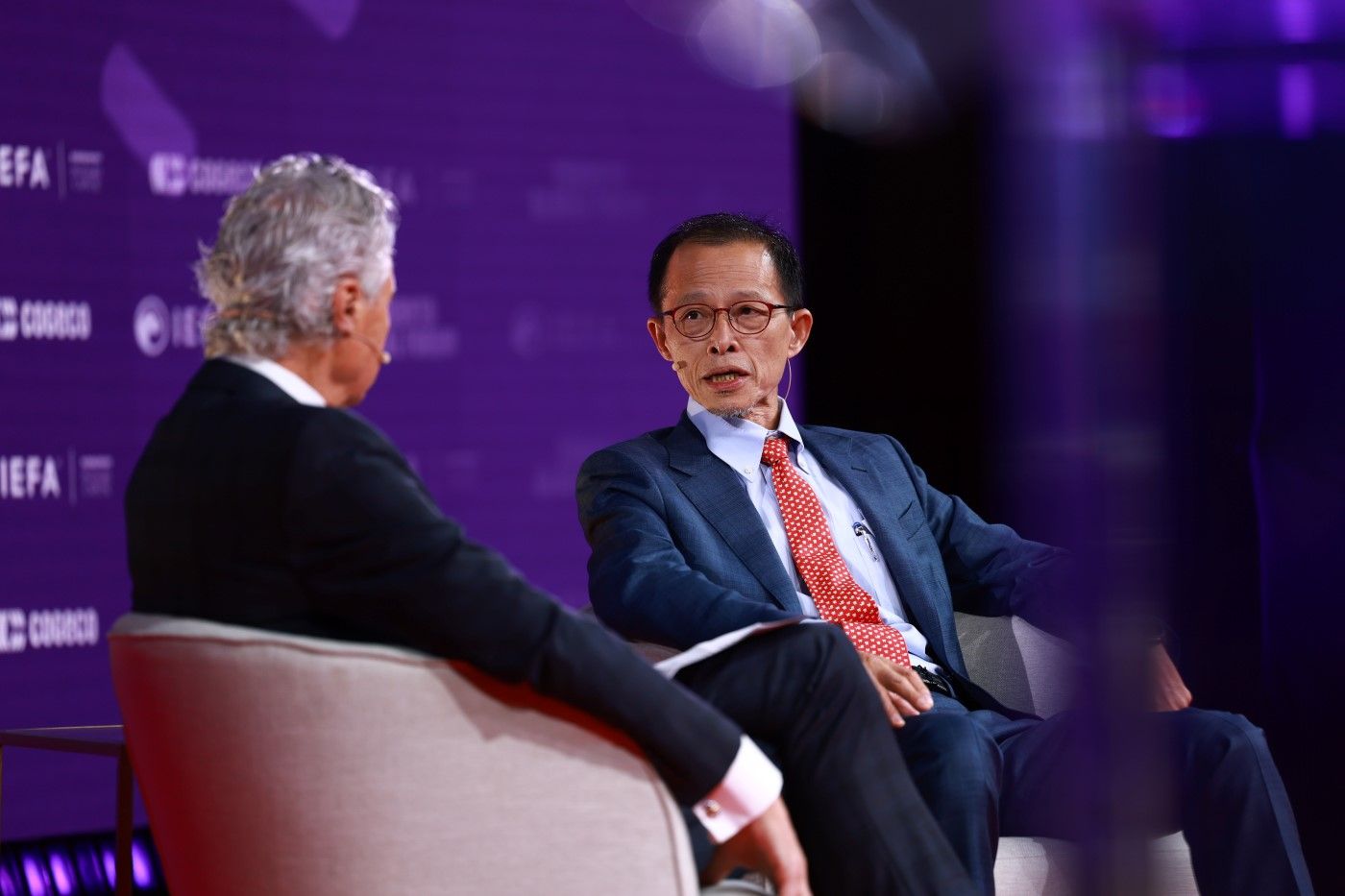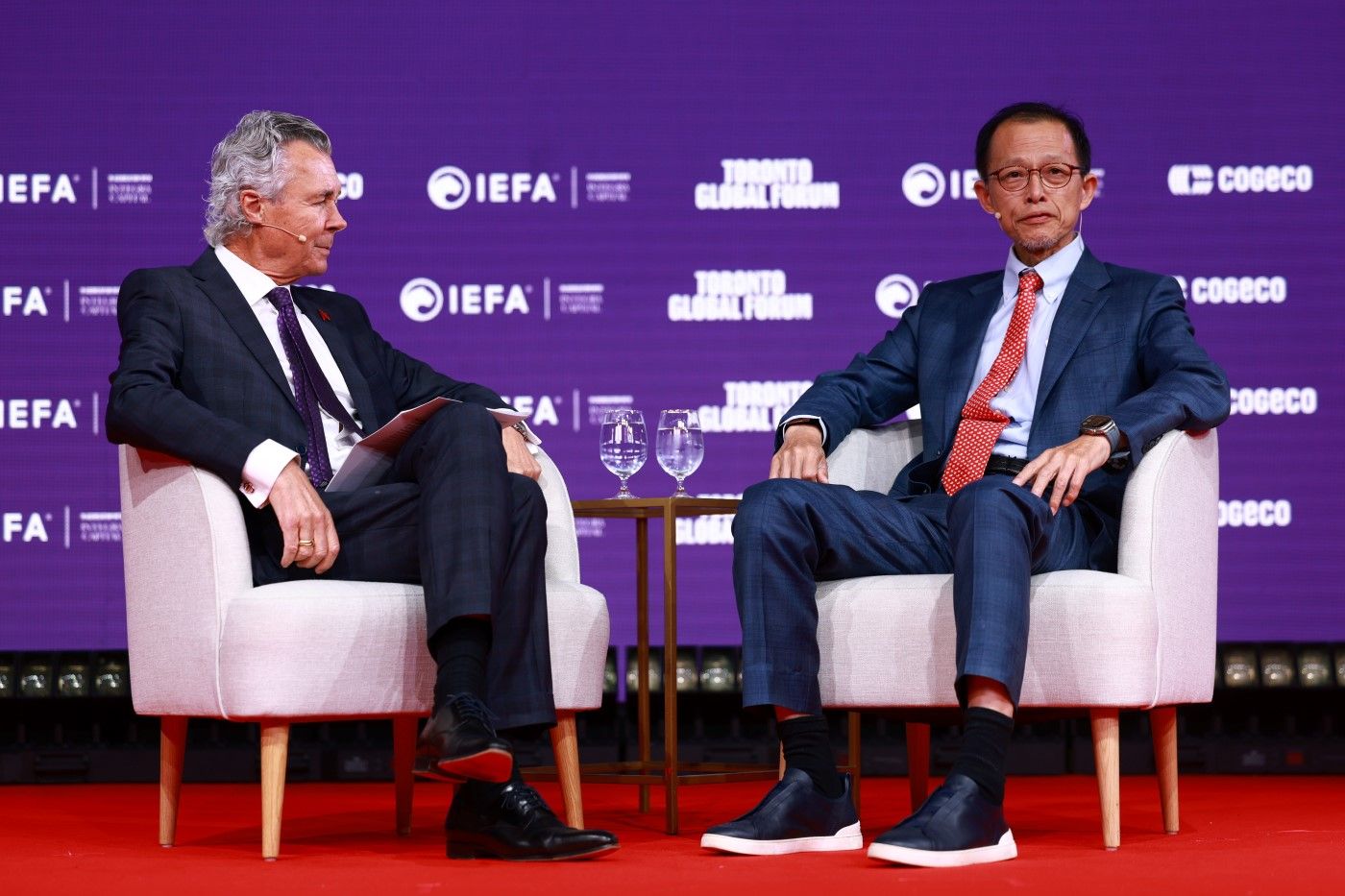News
LCY’s Bowei Lee Calls for Reindustrialization to Reshape the Global Supply Chains for a More Resilient Future at Toronto Global Forum
2025-10-20

Toronto, Canada, 17 October 2025 — Globalization is entering a different phase defined by strategic reindustrialization, weaponization of comparative advantages, as well as a reliable supply chain. At Toronto Global Forum, Bowei Lee, Chairman of LCY Group(LCY) calls for stronger collaboration to accommodate this shifting geopolitical and economic dynamics.
In a fireside chat with The Honourable Pierre Pettigrew, P.C., Chair of the Board at the Asia Pacific Foundation of Canada and former Canadian Minister of Foreign Affairs, and following opening remarks by George Spezza, Director of Niagara Economic Development, Lee emphasized that in the ‘new’ globalization — technology, talent development at various levels, and government policies are critical.
Lee notes that the old globalization, which is based on the economic theory of comparative advantages, and international collaborations under a free market, is no longer applicable. Instead of relying on other countries on the supply chain, many countries would like to have their own domestic supply chain for certain strategic industries, including semiconductors, rare earth minerals, and biotech. LCY, as a science company, is intimately involved in semiconductor as well as bioscience.

“AI is one of the pillars leading this reindustrialization in North America,” says Lee. “Advanced chips enable AI, and high-quality materials and strong supply chains enable those chips. LCY builds deep moat in technology, R&D, and economies of scale to advance industrial resilience across Asia and North America.” He adds that reindustrialization also depends on workforce development, calling for policies that rebuild vocational and engineering skills essential to manufacturing.
In semiconductors, LCY supplies electronic-grade isopropyl alcohol (E-IPA), a critical bulk wet chemical, and other formulated cleaning chemicals for advanced chip production. Through its Dual Cycle Circular Model, LCY collects, purifies, and re-supplies used IPA into virgin-like E-IPA back to fabs. The company is among only two suppliers worldwide qualified for sub-2-nanometer chips, and has received TSMC’s Excellent Performance Award of Green Manufacturing in 2024.
In biosciences, LCY develops fermentation-based carotenoids such as Vitamin A, offering natural, low-carbon ingredients for nutrition and personal care. The products also will replace synthetically made colors and supplements. Fermentation strengthens supply-chain security and supports North America’s push for locally produced, clean-label ingredients.
Lee underscores that reindustrialization requires joint action. Policymakers could enhance infrastructure building, from physical to policy, to create a regulatory environment that encourages such investment. He points to Taiwan’s cluster-based science park model, where manufacturers, suppliers, and technology providers collaborate, in a close-knit ecosystem.

See more
2025-12-23
LCY Earns 2025 CDP A- Rating for Climate Change and A for Water Security
2025-10-09
K 2025: LCY Showcases Innovative Polymer Solutions for a Sustainable Future
2025-09-10
LCY Launches Next-Gen Advanced Formulations for Semiconductor Advanced Packaging
2025-08-12
LCY Recognized by CDP as the Highest Rated Supplier Engagement Leader
2025-04-09
LCY Group Chairman Bowei Lee Wins the IISRP 2025 General Award